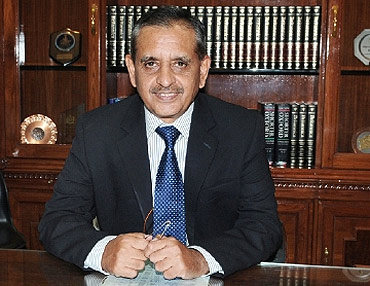In a move to weed out incompetent all-India service officers, the department of personnel and training (DoPT) has sent out a proposal to retire inefficient officers after 15 years of service, instead of tolerating them to superannuate at 60.
The proposal was sent out by DoPT to chief secretaries of all states and union territories, asking them to respond within two weeks.
"It is proposed to amend rule 16(3) of the All India Services (death-cum-retirement benefits) Rules, 1958. It is requested that the comments of the state government may kindly be conveyed to this department within two weeks. If no reply is received by then, it will be presumed that the state government has agreed to the aforesaid amendments," says the communication.
The exercise has been set in motion by the government in "public interest" to remove incompetent, inefficient and unproductive All-India Service Officers, which include IAS, IPS, IRS and IFS officers.
If the proposal comes in to effect, incompetent officers could be shown the door as early as at the age of 40. However, the proposed change in the service rules says they will still get pension for life, guaranteed at the time of their recruitment. The proposal envisages a 3-month notice or salary and allowances in lieu of the notice to retire any such officer.
The present rules permit compulsory retirement or rather dismissal of a bureaucrat at any stage of his service only on conviction for a crime or on the Central Vigilance Commission (CVC) imposing the penalty of compulsory retirement.
Many retired senior bureaucrats, however, say the proposal may not be implemented, as they point out that there is already a rule, which has not been applied, to retire an inefficient officer after he completes 30 years of service or reaches 50 years of age.
Former cabinet secretary TSR Subramanian, however, endorses the 15-year cut-off proposed for retiring officers. Subramanian feels that 15 years is sufficient time for the government to assess if a civil servant is efficient or not. "Periodic weeding out is very good. However, the
process to determine who needs to be prematurely retired should be fair and transparent since there is a possibility that even good IAS and IPS officers may be targeted because of political reasons," he said.
Former Union Public Service Commission chairman P C Hota, a retired IAS officer, said it is a correct decision since "we need drastic remedies when the situation becomes terrible". He, however, cautioned that the service records of an officer should be properly analysed after retiring him.
In a 5-page note that prompted the government to bring the competence-based performance management in the bureaucracy to weed out the "deadwood," DoPT had pointed out complete absence of competitive approach in the Indian civil services. "The key concern is absence of a clear incentive system that offers guidance for rewarding performance and punishing non-performance. Payments and promotions are
a matter of routine," the note said.
Pointing out that the Indian bureaucracy is stuck in the past, the note said the human resources management (HRM) system for the civil services in India has been inherited from the British with their weaknesses. It even suggested an independent outside agency to judge performance of the bureaucrats as it highlighted the problem of system of rewards and punishment regulated largely by the government itself, resulting in its ineffectiveness.








